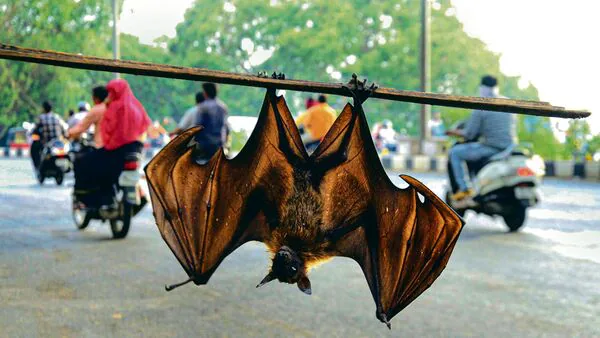
India Seeks Pharma Firms Partnership To Develop Indigenous Nipah Virus Antibody
New Delhi: Amid recurrent outbreaks, the Indian Council of Medical Research (ICMR) has sought to collaborate with Indian pharmaceutical companies to develop and manufacture monoclonal antibodies (mAbs) against the Nipah virus, which has an extremely high fatality rate, according to scientists and documents reviewed by Mint.
Monoclonal antibodies are proteins produced in laboratories that are engineered to function similarly to natural antibodies.
The ICMR's plan is to establish an indigenous production platform, requiring companies to commit to producing a minimum of 1 lakh doses per week. This comes in the backdrop of ICMR holding successful animal trials with the country's first indigenously developed monoclonal antibodies to treat Nipah virus patients, as reported by Mint earlier.
Also Read | India rolls out new hospital preparedness plan to tackle chemical emergencThe virus, which is commonly transmitted from fruit bats, has a high mortality rate. Currently, India imports monoclonal antibodies from Australia. These are administered intravenously. There is currently no vaccine available against the Nipah virus. In Kerala, four confirmed Nipah cases were reported between April and July, including the first case in Palakkad.
The move by the Indian Council of Medical Research is a critical escalation in India's preparedness against the Nipah virus, directly confronting the challenge of its extremely high fatality rate, a defining characteristic that highlights the ongoing public health emergency.
“ICMR is willing to collaborate with eligible organizations, companies, and manufacturers for the 'Development and manufacturing of Monoclonal Antibodies against Nipah viral disease," said the document. It further said that the company would be granted rights to undertake further development, manufacture, sell, and commercialize the technology/product 'monoclonal antibodies against Nipah viral disease' or undertake further R&D and commercialize the end product(s)/technology.
Also Read | India readies crackdown on pharma licence fraud with new draft ruThe document mandates a high-volume manufacturing capability as a prerequisite for qualification.“Capacity to produce at least 1 lakh doses per week" and "commitment for stockpile monoclonal antibodies (400-500 doses) for emergency use once the regulator approves use."
“The aim of the ICMR is to establish a secure, indigenous production platform for Monoclonal Antibodies, which are the only available treatment against the lethal virus. The company's urgent requirement is a stringent minimum commitment to producing 1 lakh doses per week. This massive scale-up is designed to ensure a buffer stock large enough to meet the demand of potential major outbreaks, which the sporadic yet devastating nature of Nipah poses," said a scientist familiar with the matter, who was not willing to be named.
Queries sent to the health ministry spokesperson and pharmaceutical companies such as Cipla, Bharat Biotech, Serum Institute, Dr Reddy's Laboratories, and Alkem remained unanswered till press time.
Also Read | CGHS overhaul: Real-time drug tracking and data-driven transpare Vaccine searchNo licensed Nipah vaccine or antiviral is available; candidates are years away, though one is in mid-stage trials with India identified as a key site.
"Nipah is a deadly disease, transmitted by bats, with a very high mortality of more than 80%," Dr. Balram Bhargava, former ICMR director general, said. He asserted that developing a Nipah vaccine is impractical, as "vaccination for Nipah is not going to be a useful tool" since it is unclear whom to vaccinate. Instead, Dr. Bhargava emphasized monoclonal antibodies (mAbs) as "probably one of the best things to be used for the treatment of Nipah." These intravenously administered mAbs are vital for both the early diagnosis and treatment of patients.
Furthermore, this therapeutic approach would also benefit other Southeast Asian countries facing the Nipah virus threat, he said.
The first recognized outbreak occurred in Siliguri, West Bengal, in 2001, followed by another in Nadia district in 2007. After more than a decade of silence, the virus reappeared in Kerala in 2018, leading to a very high case fatality rate of around 91%. Since then, Kerala has reported multiple episodes, including cases in 2019 and 2021, as well as recurring spillovers in 2023 and 2025. These repeated incidents underscore the continuous Nipah risk in South India.
Legal Disclaimer:
MENAFN provides the
information “as is” without warranty of any kind. We do not accept
any responsibility or liability for the accuracy, content, images,
videos, licenses, completeness, legality, or reliability of the information
contained in this article. If you have any complaints or copyright
issues related to this article, kindly contact the provider above.

















Comments
No comment